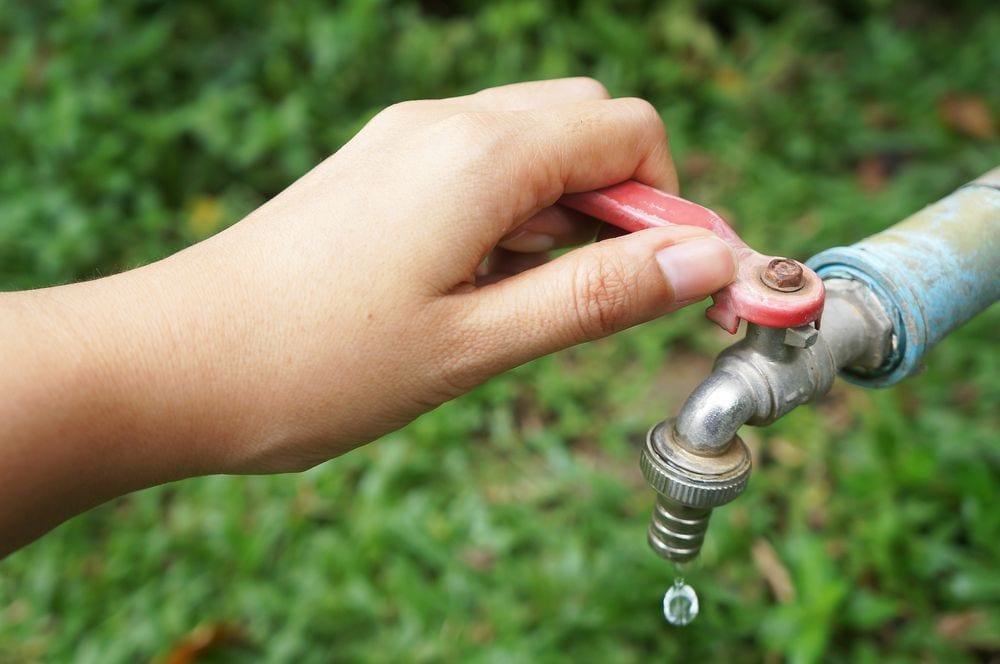How to Keep Outdoor Water Pipes from Freezing

If you’ve noticed water pooling around your water heater, you’re probably asking, “Why is my water heater leaking?” A leaking water heater isn’t just inconvenient—it could also indicate a more significant problem. Let’s dive into what causes water heater leaks, whether they’re fixable, and when it’s time to call a professional plumber in Kentuckiana.
Is It Normal for a Water Heater to Leak?
In short, no. While small amounts of condensation can sometimes form on the tank during operation, consistent leaks are not normal. A water heater is designed to hold and heat water without allowing it to escape. If you notice water dripping, pooling, or seeping from your heater, it’s a sign something isn’t working as it should.
Some reasons for minor moisture include:
- Condensation: Temporary moisture on the tank, especially in humid areas like Louisville, KY.
- Pressure Relief Valve Release: This valve may release water occasionally to manage pressure inside the tank.
However, if you see consistent leaking, it’s time to investigate further.
What Causes a Water Heater to Leak?
Several issues can cause your water heater to leak, ranging from minor fixes to major repairs. Here are the most common culprits:
- A Faulty Drain Valve: The drain valve at the bottom of the tank allows for water drainage during maintenance. If this valve becomes loose or damaged, it can lead to leaks.
- Corroded Tank: Over time, sediment build-up inside your tank can cause corrosion, eventually leading to cracks and leaks. This is especially common in older models.
- High Water Pressure: Excess pressure inside the tank may force water out of weak points. This could happen if the pressure relief valve is malfunctioning or if the water pressure in your home is too high.
- Loose Plumbing Connections: In some cases, the connections leading to and from the water heater may loosen over time, causing leaks at the joints.
- A Worn-Out Anode Rod: The anode rod prevents rust by attracting corrosive particles in the water. Once it wears out, your tank is more susceptible to rust and leaks.
Can a Water Heater Leak Be Fixed?
The good news is that many water heater leaks are fixable, especially if they’re caught early. Depending on the source of the leak and the severity of the issue, you may be able to resolve the problem on your own, or you may need to call a professional. Let’s break down your options:
Minor Fixes You Can Handle:
- Tighten Loose Connections: Inspect the hot and cold water pipes for drips. Use a wrench to tighten any loose fittings, but don’t over-tighten, as this may cause damage.
- Replace the Drain Valve: If the valve at the bottom of the tank is leaking, turn off the water supply, drain the tank, and replace the valve with a new one. Check your water heater manual for the right replacement part.
- Check the Pressure Relief Valve: This valve releases water if the pressure is too high. Lift the lever to test it and reset. If it keeps leaking, it may need replacement or your home’s water pressure might require adjustment.
When Repairs Aren’t Enough:
- Replace the Tank: Leaking tanks caused by corrosion or cracks must be replaced. Signs include rust-colored water, visible cracks, or persistent puddling. While replacement is an investment, modern, energy-efficient models can save you money over time.
- Call a Professional: Complex issues like internal damage or faulty components require expert help. DIY attempts risk further damage or voiding your warranty.
For reliable water heater repair in Kentuckiana, contact Greenwell at (502) 205-2482.
Water Heater Leaking? When to Call a Professional
Not sure if you need professional help? Here are a few signs it’s time to call Greenwell:
- Consistent Leaks: Persistent leaks after DIY fixes may indicate internal corrosion or pressure issues requiring expert attention.
- Discolored Water: Rusty or murky water suggests tank corrosion or a worn-out anode rod.
- Water Damage: Pools around the heater can lead to mold and structural damage—act quickly.
- Unusual Noises: Rattling or popping sounds often mean sediment build-up, reducing efficiency and risking damage.
- Lack of Hot Water: Insufficient or no hot water points to potential heating element or thermostat issues.
Reach out to Greenwell by calling (502) 205-2482. Our team is ready to help resolve your water heater issues.
Preventing Future Water Heater Leaks
The best way to avoid costly repairs is through regular maintenance. Here’s how:
- Flush the Tank Annually: This removes sediment build-up, reducing the risk of corrosion.
- Inspect the Anode Rod: Replace it every 2-5 years to protect the tank from rust.
- Check Connections and Valves: Ensure all fittings are secure and functioning properly.
- Monitor Water Pressure: High water pressure can strain your system—use a pressure regulator if needed.
For more preventative tips, explore our Leak Repair Services.
Don’t Let a Leaking Water Heater Disrupt Your Life
A leaking water heater can quickly escalate into a bigger problem. By understanding what causes these leaks and knowing when to call in a professional, you can protect your home and wallet. For expert water heater repair in Kentuckiana, trust Greenwell. Contact us at (502) 205-2482 today.

